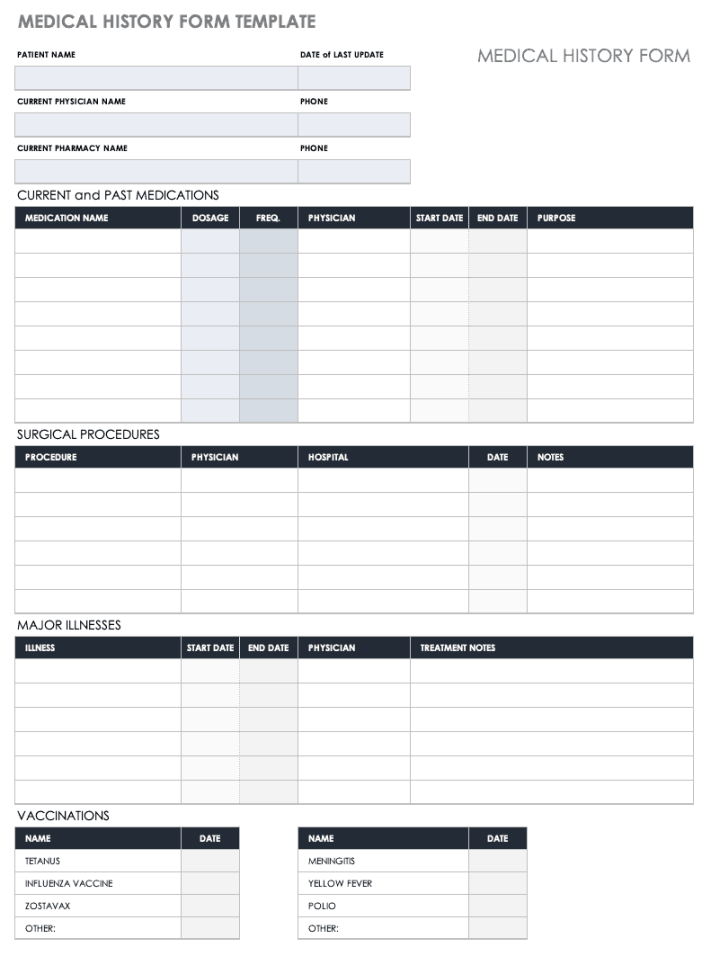The Foundation of Effective Medical Documentation
Medical report templates are the backbone of efficient and accurate healthcare documentation. A well-designed template ensures consistency, clarity, and adherence to medical standards. By streamlining the reporting process, these templates save time and reduce the risk of errors.
Key Design Elements for Professionalism and Trust

Image Source: smartsheet.com
Clarity and Conciseness:
A clear and concise layout is essential for easy readability. Avoid cluttering the template with unnecessary information. Use a clean, minimalist design that prioritizes essential details.
Choose a professional and legible font that enhances readability. Serif fonts like Times New Roman or serif fonts like Arial or Calibri are popular choices. Maintain consistent font sizes and styles throughout the template.
If applicable, incorporate your healthcare organization’s branding elements, such as logo, color scheme, and font style. This creates a cohesive and professional look.
Use clear and concise section headings to organize the report effectively. This helps readers quickly locate specific information. Consider using a larger font size or bold formatting for headings to improve visibility.
White space is crucial for improving readability and visual appeal. Use ample white space between sections, paragraphs, and lines of text. This creates a clean and uncluttered design.
Choose a color palette that complements your branding and evokes trust. Avoid overly bright or distracting colors. Opt for a neutral color scheme, such as shades of blue, gray, or green.
Essential Components of a Medical Report Template
Patient Information:
Include fields for patient name, date of birth, medical record number, and other relevant demographic information.
Clearly indicate the date and time the report was generated.
Specify the name and contact information of the referring physician.
Provide a concise summary of the reason for the patient’s referral.
Include a section for documenting the patient’s past medical history, surgeries, allergies, and current medications.
Detail the results of the physical examination, including vital signs, general appearance, and specific system examinations.
List any diagnostic tests performed, such as laboratory tests, imaging studies, or other procedures. Include the results of these tests.
Provide a comprehensive assessment of the patient’s condition, including differential diagnoses.
Outline the recommended treatment plan, including medications, therapies, or surgical interventions.
Specify any follow-up appointments or tests required.
Include a section for the healthcare provider’s signature, name, and credentials.
Tips for Creating Effective Medical Report Templates
User Testing:
Involve healthcare professionals in the design process to gather feedback and ensure the template meets their needs.
Periodically review and update the template to reflect changes in medical standards and regulations.
Consider creating customizable templates that allow for flexibility in different clinical scenarios.
Ensure the template is accessible to individuals with disabilities by following accessibility guidelines.
By incorporating these design elements and essential components, you can create professional and effective medical report templates that enhance patient care and streamline documentation processes.